|
|
|
Options to Minimize Food Waste
|
|
Providing Nutritious Food to Texans While Acting as Good Stewards Of Valuable Resources
School nutrition professionals may find that leftovers present a challenge regardless of efforts to plan for efficiency and prepare appealing meals. Recognizing the challenges, TDA has provided a list of food-waste-reduction strategies that maximize the value of school meal leftovers. Using these resources will enable school nutrition professionals to provide added nutrition for Texas while acting as good stewards of valuable resources.
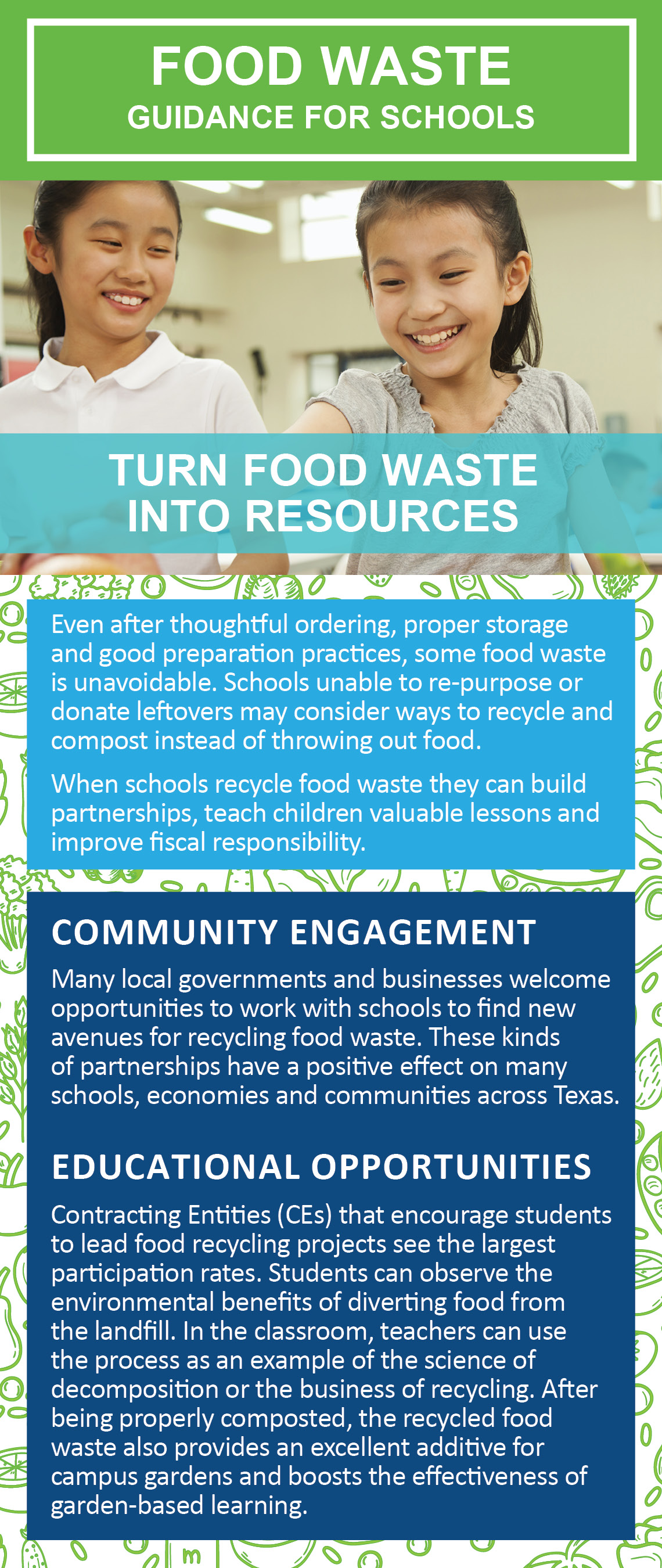 | food waste options - even with thoughtful ordering, proper storage and good preparation practices, some food waste is unavoidable. when school food professionals cannot re-purpose or donate leftovers, they may consider recycling and composting instead of throwing out food. when schools recycle food waste they can build partnerships, teach children valuable lessons and improve fiscal responsibility. | 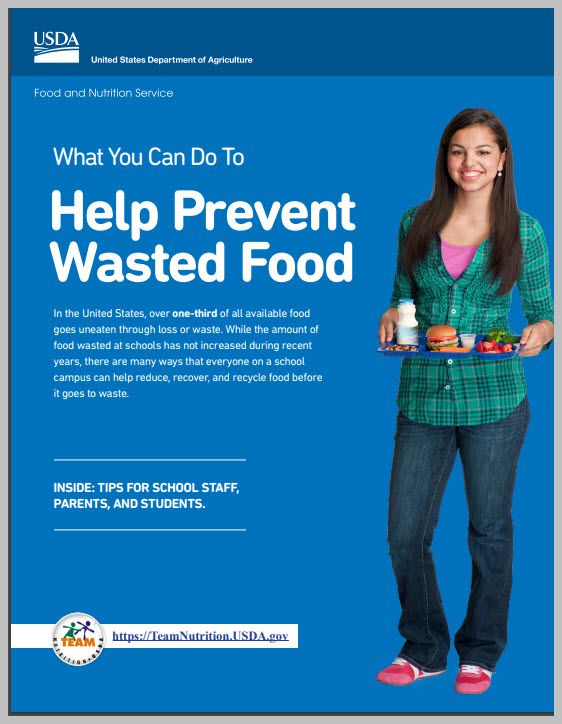 | help prevent wasted food - this booklet released by usda discusses ways to reduce, recover, and recycle food before it goes to waste. get ideas for your school by reading tips for school nutrition professionals, teachers, parents, students, and school administrators. | 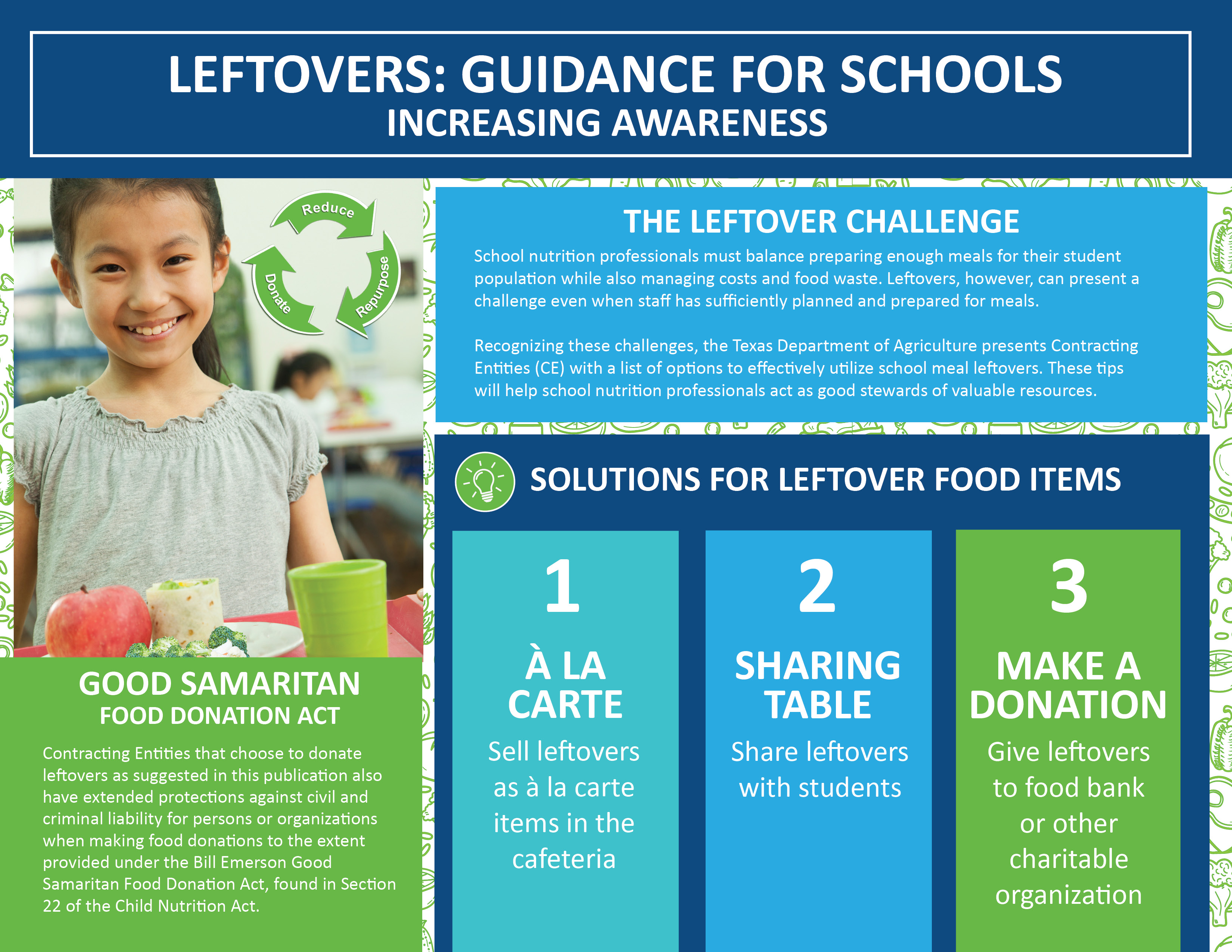 | leftovers: guidance for schools - preparing enough school meals for their student population, while managing costs and food waste, requires constant diligence on the part of school nutrition professionals. to minimize food waste, schools may set up leftover sharing tables, sell leftovers as second meals and al a carte items, or donate food to eligible local food banks or charitable organizations as long as all state and local health and safety regulations are followed. | 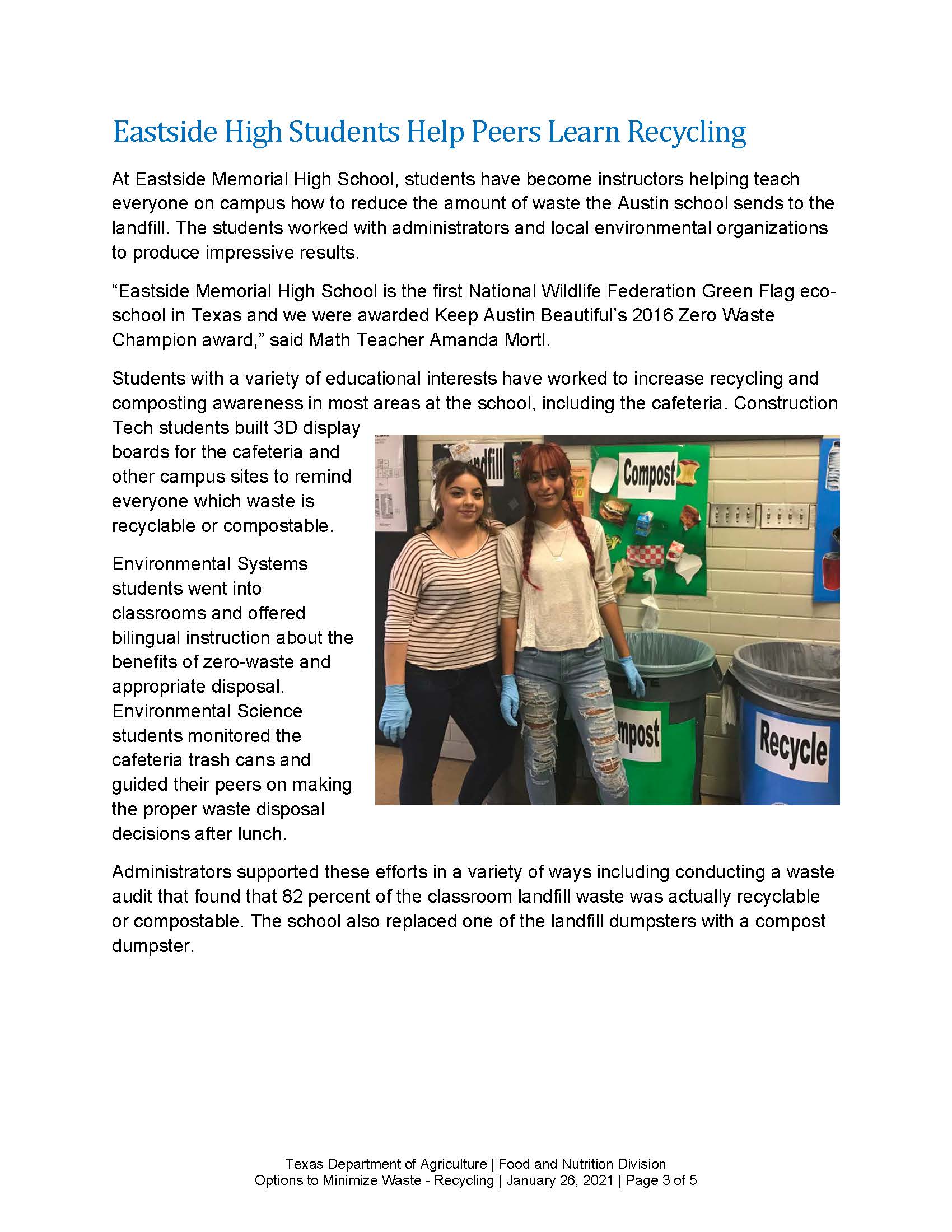 | options to minimize waste - recycling - learn more about the recycling efforts of two school districts and how those efforts benefitted the students..
|  | reducing food waste at k-12 schools - visit this usda webpage to explore strategies, resources, and curriculum on reducing food waste in schools. | >>>>
|
|
|
|
|
|
|
|
|
|
|
Assistance available in English and Spanish. Please call 877-TEX-MEAL (877-839-6325) for help. Additional translations services available as well.
|
|
In accordance with federal civil rights law and U.S. Department of Agriculture (USDA) civil rights regulations and policies, this institution is prohibited from discriminating on the basis of race, color, national origin, sex, disability, age, or reprisal or retaliation for prior civil rights activity.
Program information may be made available in languages other than English. Persons with disabilities who require alternative means of communication to obtain program information (e.g., Braille, large print, audiotape, American Sign Language), should contact the responsible state or local agency that administers the program or USDA’s TARGET Center at (202) 720-2600 (voice and TTY) or contact USDA through the Federal Relay Service at (800) 877-8339.
To file a program discrimination complaint, a Complainant should complete a Form AD-3027, USDA Program Discrimination Complaint Form which can be obtained online at: https://www.usda.gov/sites/default/files/documents/ad-3027.pdf, from any USDA office, by calling (866) 632-9992, or by writing a letter addressed to USDA. The letter must contain the complainant’s name, address, telephone number, and a written description of the alleged discriminatory action in sufficient detail to inform the Assistant Secretary for Civil Rights (ASCR) about the nature and date of an alleged civil rights violation. The completed AD-3027 form or letter must be submitted to USDA by:
|
|
1. Mail:
U.S. Department of Agriculture
Office of the Assistant Secretary for Civil Rights
1400 Independence Avenue, SW
Washington, D.C. 20250-9410; or
2. Fax: (833) 256-1665 or (202) 690-7442; or
|
|
| This institution is an equal opportunity provider. |
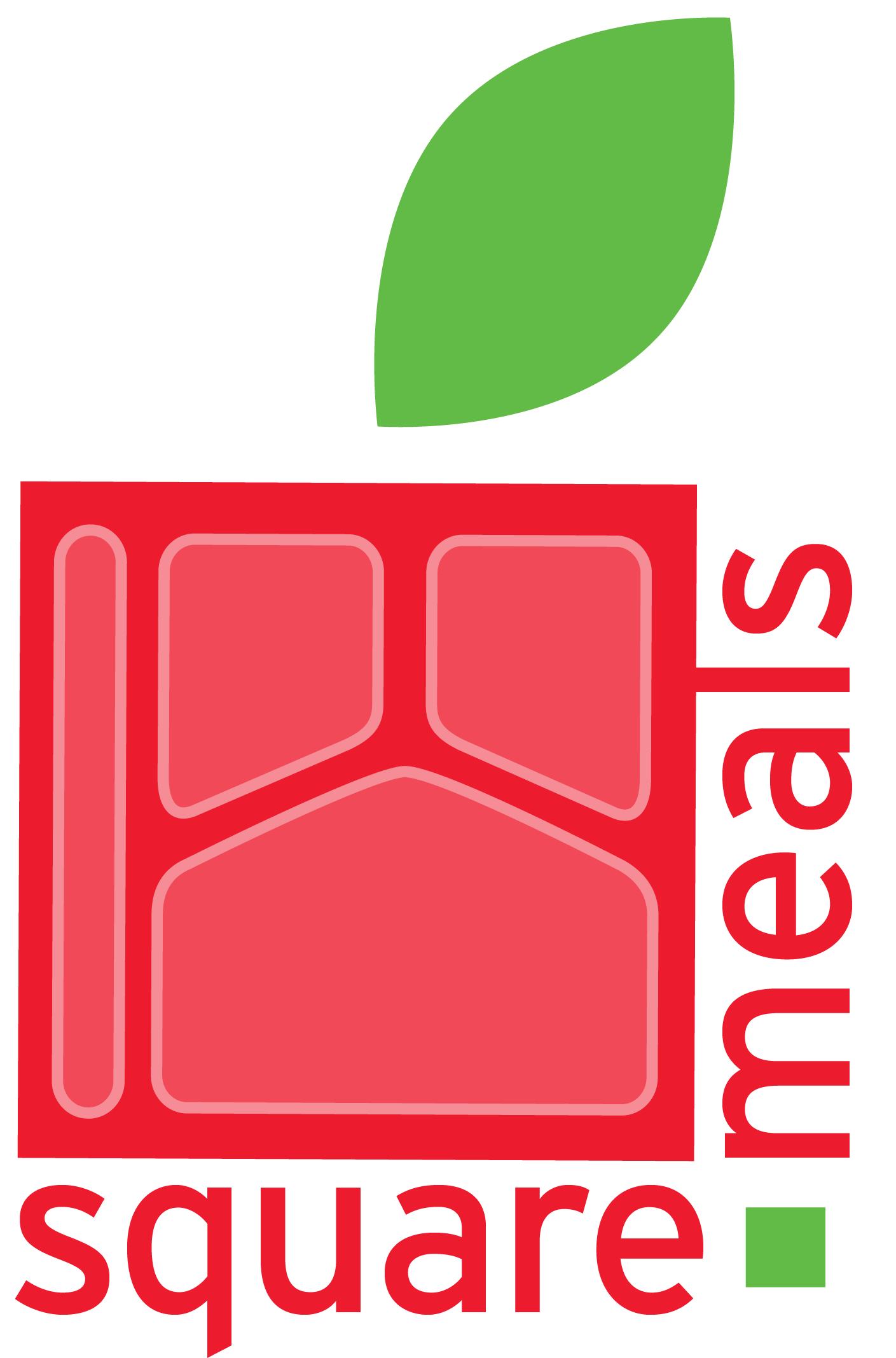 |
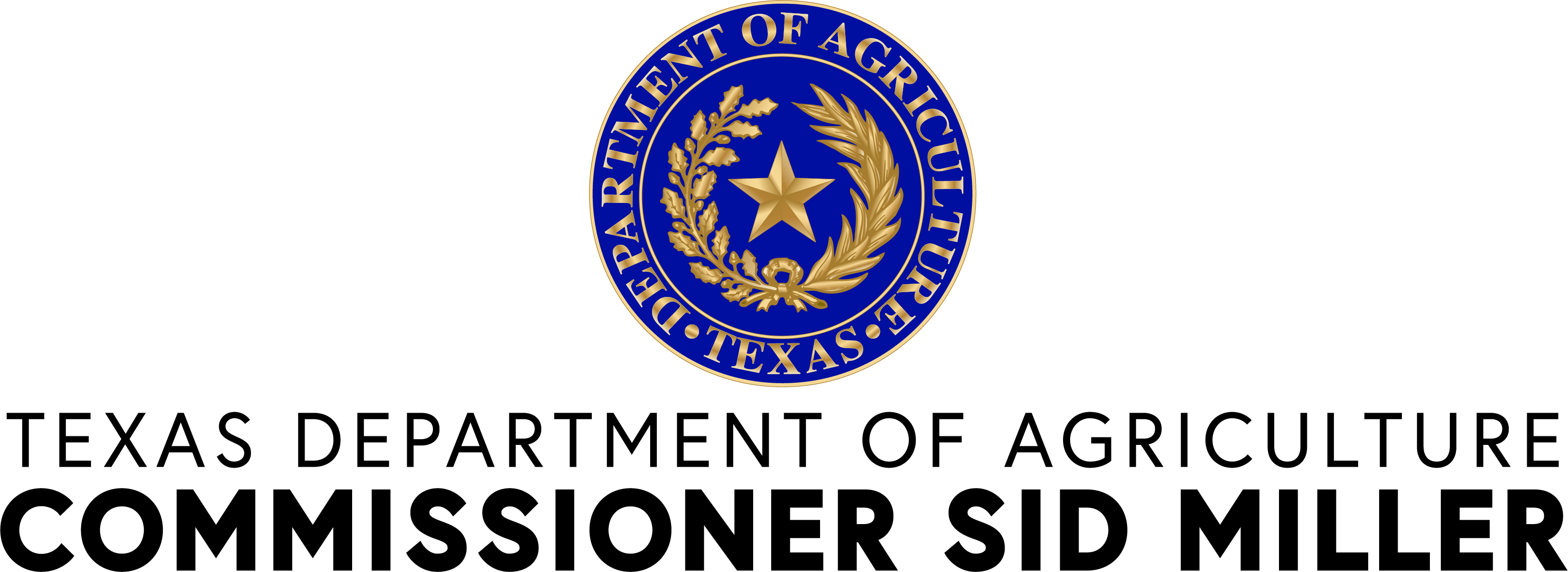
|
|
|